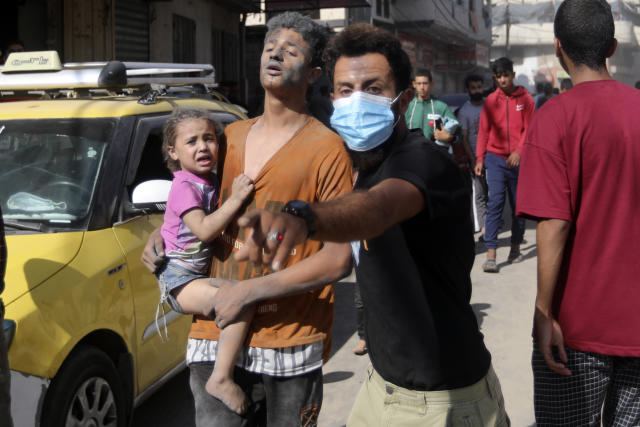Ground Battles Rage in Gaza as Israel Cuts Off Telecommunications: Examining the Ongoing Injustice
The volatile and deeply entrenched conflict between Israel and Gaza has once again erupted into violence, leaving innocent civilians on both sides caught in the crossfire. As the world watches, the situation has taken a dire turn, with ground battles intensifying and Israel cutting off telecommunications in Gaza. This article will delve into the recent developments in the Israel-Gaza conflict, specifically focusing on the implications of cutting off telecommunications for the people of Gaza and the broader context of perceived injustices.
The Escalation of Ground Battles:
The Israel-Gaza conflict is a long-standing and complex issue with historical, territorial, and political roots. Recent events have seen a surge in ground battles, with Israeli forces engaging in intense clashes with Palestinian militants. These confrontations have escalated tensions, resulting in significant casualties and destruction on both sides.
Cutting Off Telecommunications:
Amidst this escalation, one particularly troubling development is the decision by Israeli authorities to cut off telecommunications in Gaza. The primary reason cited for this action is the concern over the use of communication networks by Palestinian militants to coordinate attacks against Israel. While national security is a valid concern for any country, it is essential to consider the profound consequences such actions have on innocent civilians in Gaza.
Impact on Gaza's Population:
The most significant impact of cutting off telecommunications is borne by the people of Gaza, who are already living in difficult conditions. The loss of communication services hampers their ability to access essential services, stay connected with loved ones, and receive information about the ongoing conflict. Hospitals, humanitarian organizations, and ordinary citizens rely on telecommunication networks to coordinate medical treatment, distribute aid, and ensure their safety.
Furthermore, the decision to cut off telecommunications exacerbates the isolation of Gaza from the rest of the world. It effectively cuts off their ability to share their plight and the realities of life in the conflict zone with the global community. This isolation can make it difficult for international organizations and governments to provide aid and assess the situation accurately.
Perceived Injustices:
While the Israel-Gaza conflict is undeniably complex, the perception of injustice remains a significant issue. The international community, along with many human rights organizations, has criticized Israel for its policies and actions in Gaza. Cutting off telecommunications is seen by many as another example of the disproportionate use of force and collective punishment on an entire population.
Human rights advocates argue that the collective punishment of Gaza's civilians through actions like cutting off telecommunications only serves to further entrench hatred and resentment, making the prospects for a peaceful resolution more elusive. To address the root causes of the conflict, they argue for a focus on diplomacy, negotiations, and respect for the rights and dignity of all people involved.
Conclusion:
The ongoing ground battles in Gaza, along with Israel's decision to cut off telecommunications, have led to a dire humanitarian crisis in the region. Innocent civilians, who have little control over the actions of their respective governments, are paying the heaviest price. It is essential for the international community to redouble its efforts to broker a lasting peace and address the legitimate concerns of both sides.
While security concerns must be taken seriously, the actions taken by any party in a conflict should be proportional and consider the humanitarian implications. Cutting off telecommunications, as seen in this context, raises questions about the ethics and effectiveness of such measures and their impact on innocent civilians. To break the cycle of violence and injustice in the Israel-Gaza conflict, a renewed commitment to dialogue, diplomacy, and human rights is essential.



Comments
Post a Comment